When it comes to shipping special cargo, having the right template can make all the difference in ensuring your needs are met efficiently. Whether you're transporting fragile items, hazardous materials, or oversized freight, a well-crafted letter can clarify your specific requirements and streamline the process. In this article, we'll walk you through an easy-to-use letter template designed to cover all essential aspects of special cargo needs. So, if you're ready to simplify your shipping experience, keep reading to discover how our template can help!
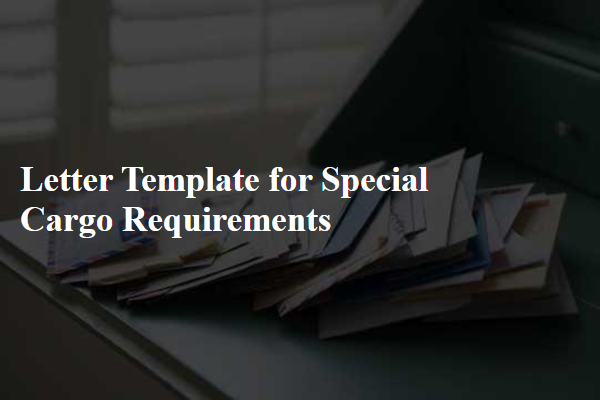
Cargo Description and Specifications
Special cargo requires detailed descriptions and specifications to ensure proper handling and transportation. Types of cargo may include sensitive electronic equipment, hazardous materials, or temperature-sensitive pharmaceuticals. Weight specifications should be provided, such as a maximum payload of 2000 kg for certain aerial transports. Dimensions are critical; for instance, ensuring width does not exceed 2.5 meters for highway transport. Packaging details must be outlined, emphasizing protective measures like custom-fitted crates or climate-controlled containers. Additionally, any required documentation, such as Material Safety Data Sheets (MSDS) for hazardous materials, must accompany the cargo to meet regulatory compliance during transit.
Handling and Storage Instructions
Special cargo requirements necessitate specific handling and storage instructions to ensure safety and preservation. Temperature-sensitive items, such as pharmaceuticals, must be stored between 2 to 8 degrees Celsius to maintain efficacy. Fragile materials, including glass or ceramics, require cushioning packaging and "Handle with Care" labels to prevent breakage during transport. Hazardous goods, such as flammable liquids, must adhere to local regulations (such as OSHA guidelines) and be stored in dedicated fireproof containers. Additionally, perishable goods, like food items, should be monitored with temperature loggers to avoid spoilage. Finally, ensure that all personnel handling these items are adequately trained in safety protocols and the unique requirements associated with each type of cargo.
Regulatory Compliance and Documentation
Special cargo requirements involve essential regulatory compliance measures and thorough documentation processes. The International Air Transport Association (IATA) sets forth specific guidelines for shipping dangerous goods, which must adhere to section 7 of the IATA Dangerous Goods Regulations (DGR). This includes classification, packaging, and labeling of items like lithium batteries, which often require UN numbers (such as UN3480 for standalone batteries). Compliance documentation must include declarations and safety data sheets to inform all handling personnel. Additionally, international shipments may necessitate compliance with customs regulations of countries involved, such as the Harmonized System (HS) codes for tariff classification and import/export licenses where applicable. Attention to detail in these processes ensures smooth transit and mitigates risks associated with the transportation of specialized cargo.
Safety and Risk Management Details
Special cargo requirements necessitate comprehensive safety and risk management protocols specific to the nature of hazardous materials. Transporting dangerous goods, such as flammable substances (e.g., gasoline, which has a flash point below 37.8 degrees Celsius), explosives, or toxic chemicals, demands compliance with regulations like the United Nations Recommendations on the Transport of Dangerous Goods. Proper packaging is essential; for instance, using UN-approved containers ensures durability and minimizes leakage risks during transit. Documentation must detail each item's classification, with emergency response instructions readily accessible to mitigate potential mishaps. Training personnel involved in handling such cargo, particularly in areas like emergency response protocols, is crucial for maintaining safety standards. Regular safety audits, adhering to guidelines from agencies such as the Occupational Safety and Health Administration (OSHA) and the International Air Transport Association (IATA), further enhance risk management efforts throughout the transport process.
Contact Information and Communication Protocols
Special cargo requirements necessitate stringent contact information and communication protocols to ensure safe and efficient transportation. The point of contact should include a designated liaison, often referred to as a freight coordinator, responsible for overseeing special cargo handling. This contact should possess a valid phone number (preferably direct, with area code) and an email address for immediate communication. The communication protocol should outline specific channels for urgent inquiries (e.g., emergency hotline) and regular updates, typically on progress tracking through a centralized system. Transparency in temperature-sensitive cargo handling is crucial, with checks at specified intervals, such as every two hours during transport, to adhere to safety standards. Additionally, documentation must accompany all cargo, including a detailed manifest, hazardous materials declaration if applicable, and any required permits--ensuring compliance with local regulations and international guidelines.

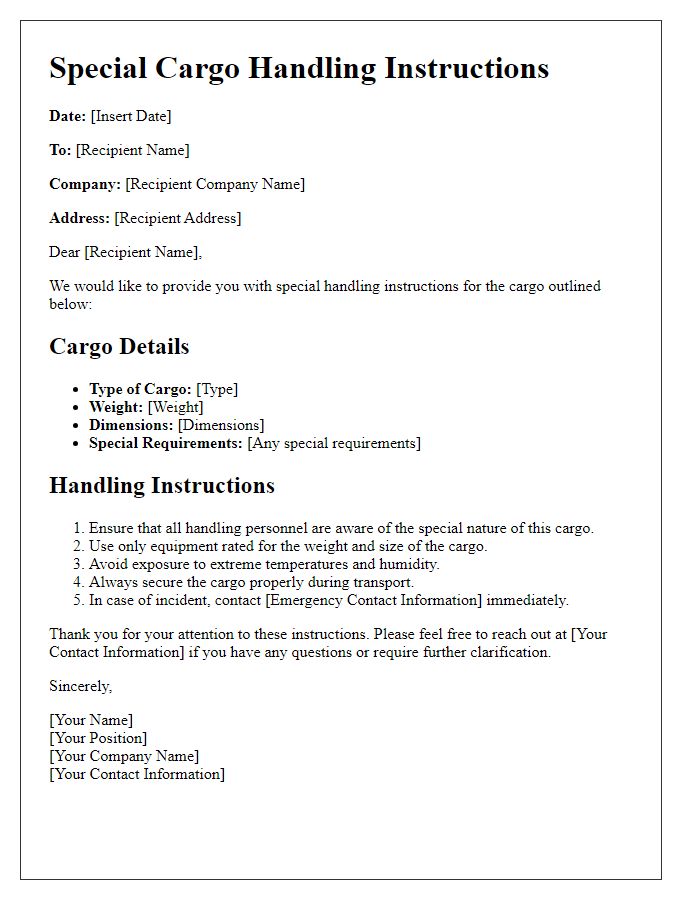
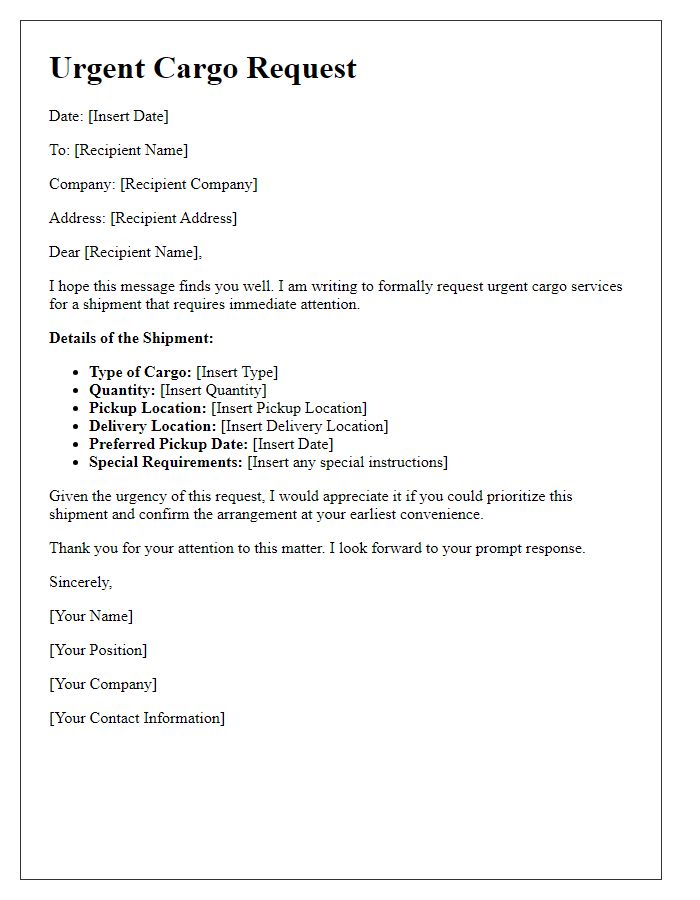
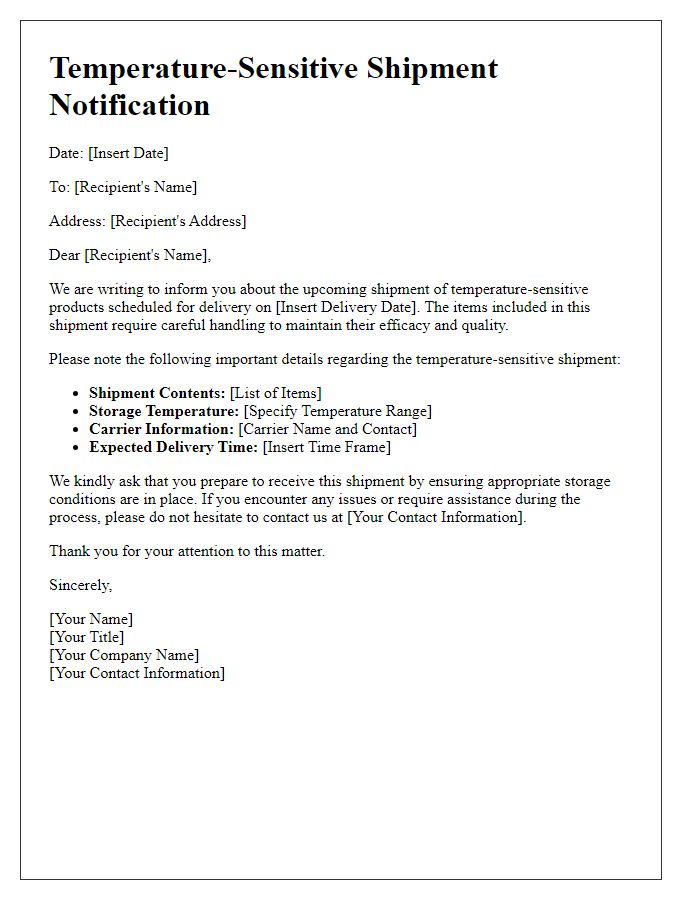
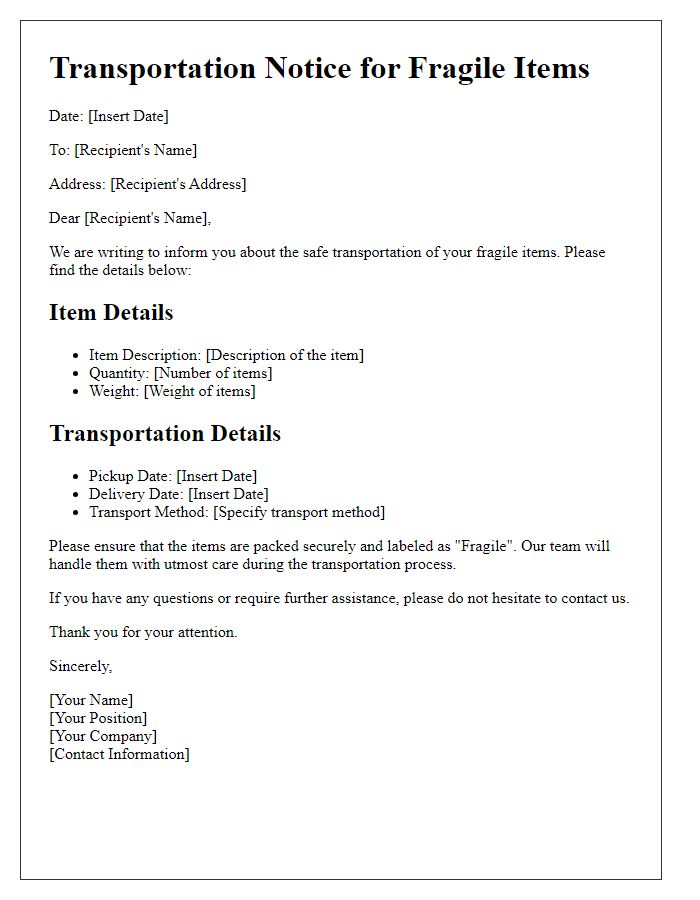
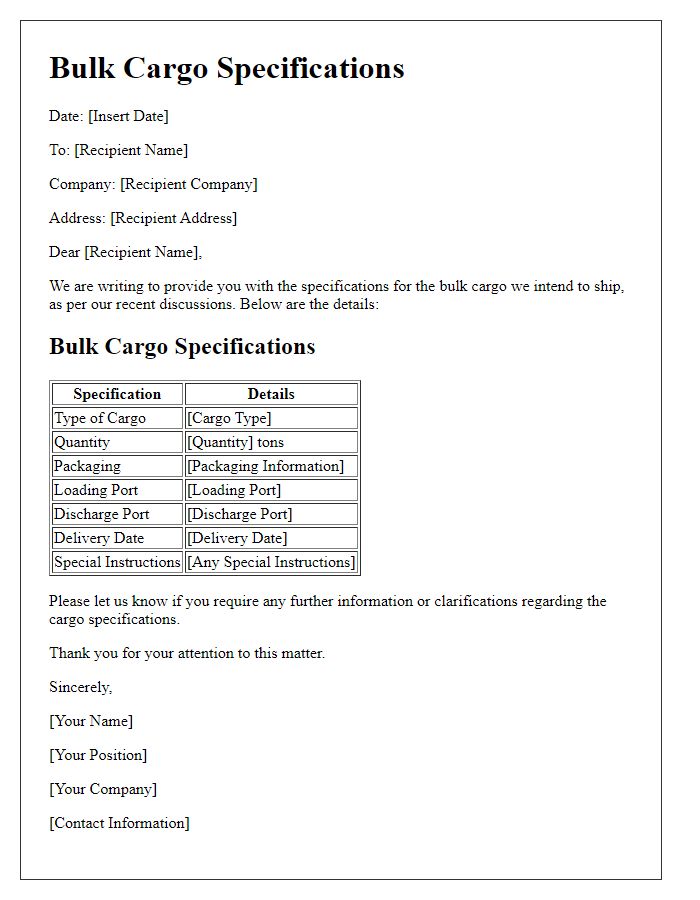
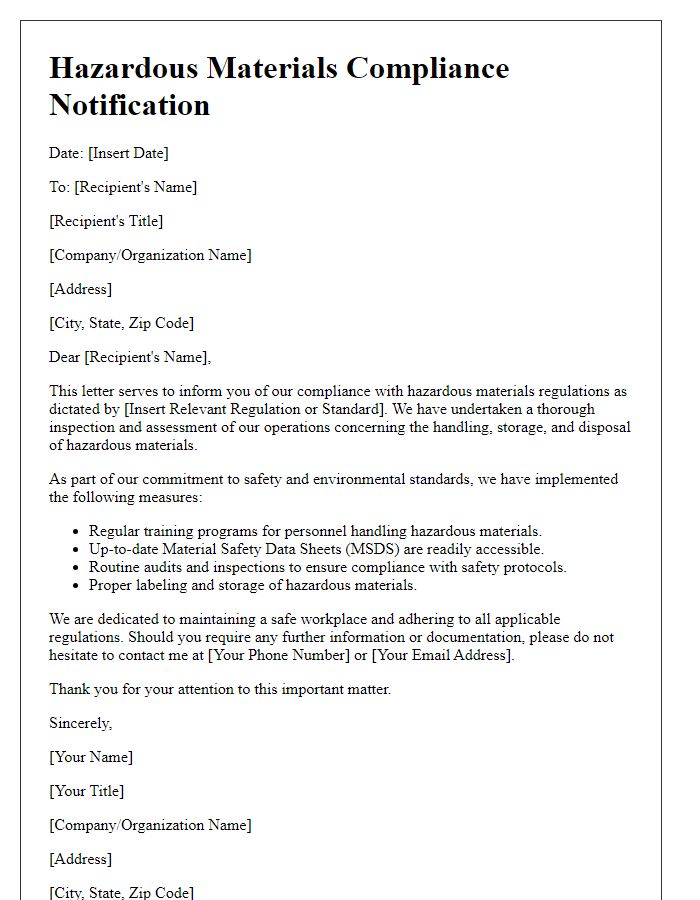
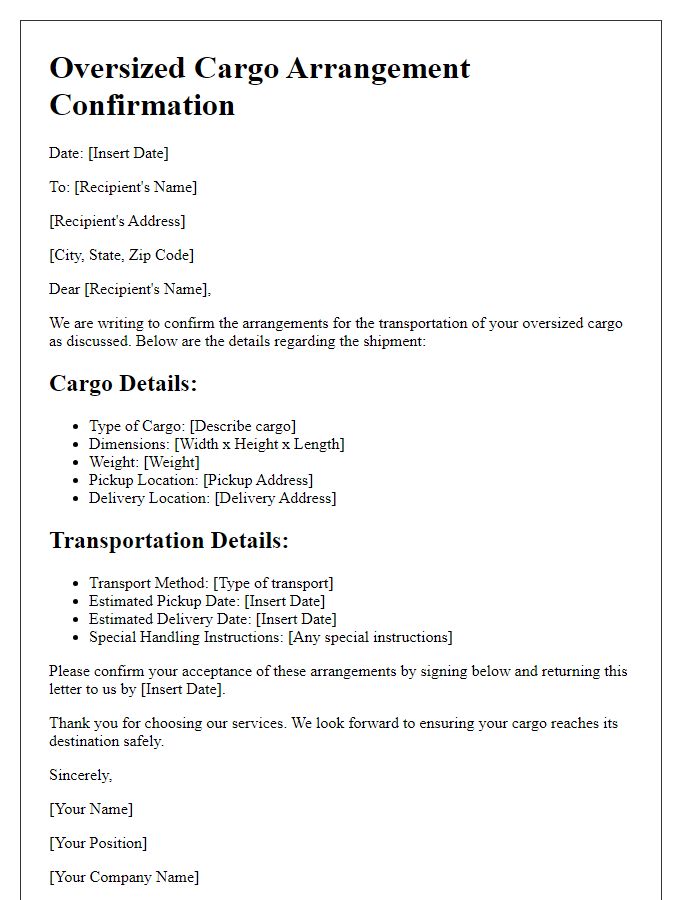
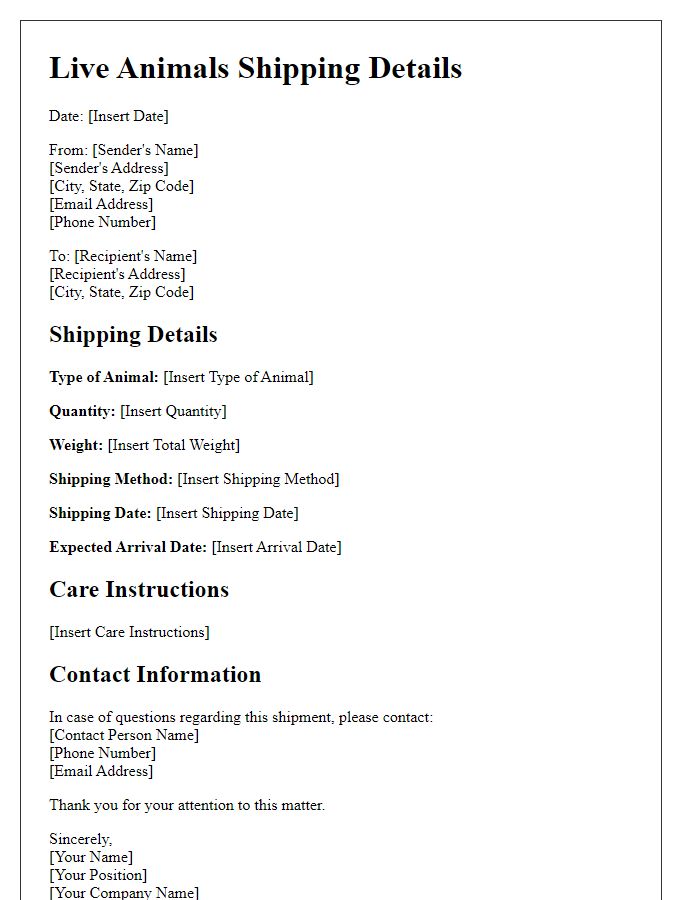
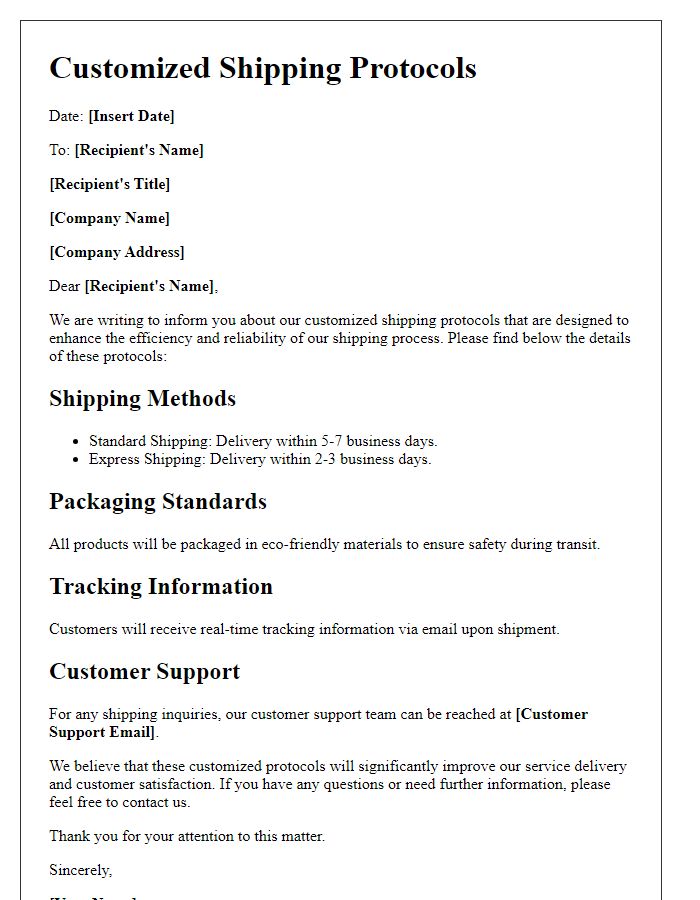
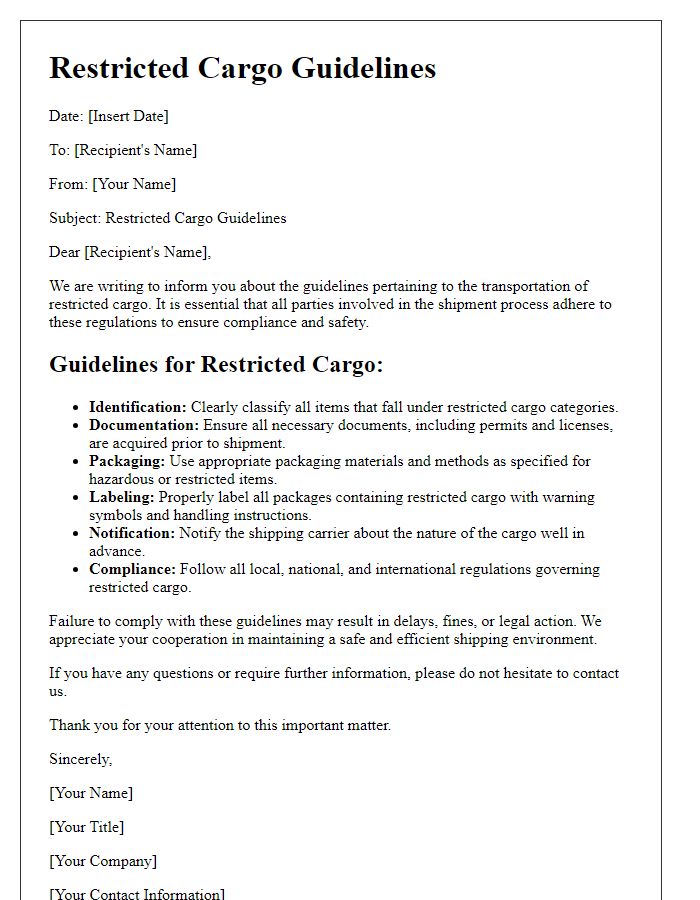


Comments